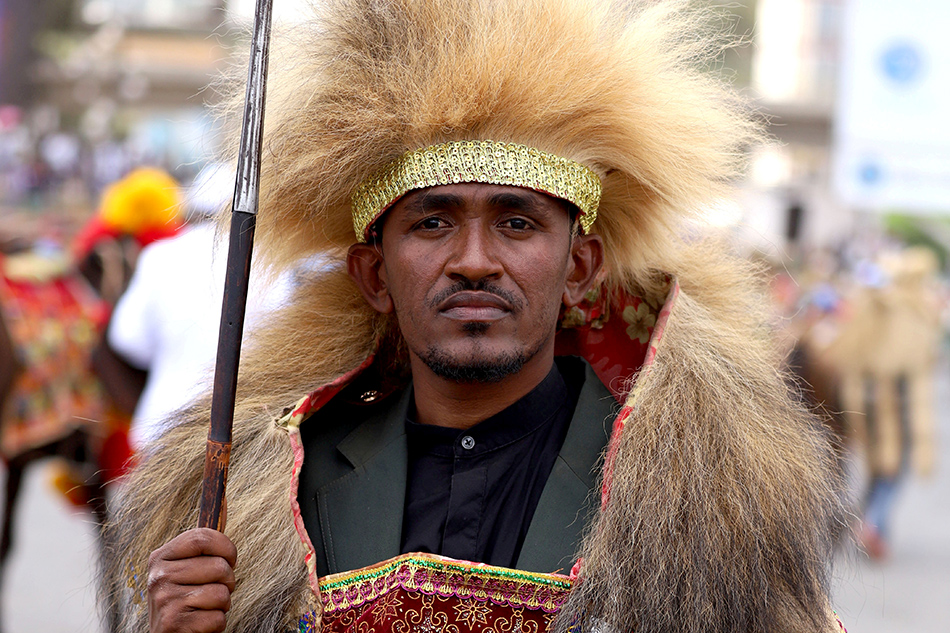At least 52 killed in Ethiopia protests over singer's death | ABS-CBN
ADVERTISEMENT

Welcome, Kapamilya! We use cookies to improve your browsing experience. Continuing to use this site means you agree to our use of cookies. Tell me more!
At least 52 killed in Ethiopia protests over singer's death
At least 52 killed in Ethiopia protests over singer's death
Dawit Endeshaw,
Reuters
Published Jul 01, 2020 07:27 PM PHT
ADDIS ABABA - At least 50 people were killed in Ethiopia's Oromiya region in protests following the fatal shooting of a popular singer, a regional spokesman said Wednesday, laying bare splits in the prime minister's political heartland ahead of next year's polls.
ADDIS ABABA - At least 50 people were killed in Ethiopia's Oromiya region in protests following the fatal shooting of a popular singer, a regional spokesman said Wednesday, laying bare splits in the prime minister's political heartland ahead of next year's polls.
Musician Haacaaluu Hundeessaa was shot dead on Monday night in what police said was a targeted killing.
Musician Haacaaluu Hundeessaa was shot dead on Monday night in what police said was a targeted killing.
Protests reflecting anger at the killing of a popular figure and a sense of political marginalization broke out the next morning in the capital and other towns and cities in the surrounding Oromiya region.
Protests reflecting anger at the killing of a popular figure and a sense of political marginalization broke out the next morning in the capital and other towns and cities in the surrounding Oromiya region.
The dead included protesters and members of the security forces, spokesman Getachew Balcha said. Some businesses had also been set on fire.
The dead included protesters and members of the security forces, spokesman Getachew Balcha said. Some businesses had also been set on fire.
ADVERTISEMENT
"We were not prepared for this," he said.
"We were not prepared for this," he said.
Police said late on Tuesday that a policeman was also killed in Addis Ababa, and 3 explosions there had killed and injured an unspecified number of people.
Police said late on Tuesday that a policeman was also killed in Addis Ababa, and 3 explosions there had killed and injured an unspecified number of people.
Prominent Oromo opposition leader Bekele Gerba and media mogul Jawar Mohammed were also arrested when Jawar's bodyguards refused to disarm during a stand-off with police.
Prominent Oromo opposition leader Bekele Gerba and media mogul Jawar Mohammed were also arrested when Jawar's bodyguards refused to disarm during a stand-off with police.
Haacaaluu, whose funeral will be held Thursday, provided a soundtrack to a generation of young protesters. Their 3 years of bloody street demonstrations forced the unprecedented resignation of the previous prime minister and the appointment of Prime Minister Abiy Ahmed in 2018.
Haacaaluu, whose funeral will be held Thursday, provided a soundtrack to a generation of young protesters. Their 3 years of bloody street demonstrations forced the unprecedented resignation of the previous prime minister and the appointment of Prime Minister Abiy Ahmed in 2018.
Abiy, Haacaaluu and Jawar are all Oromo, Ethiopia's largest ethnic group, which has long complained of being excluded from power.
Abiy, Haacaaluu and Jawar are all Oromo, Ethiopia's largest ethnic group, which has long complained of being excluded from power.
Jawar was a prominent supporter of Abiy's appointment, but became more openly critical last year. Jawar's popular Oromo Media Network gives him the ability to mobilize support quickly across Oromiya and his power base could pose a significant challenge to Abiy's party in next year's elections.
Jawar was a prominent supporter of Abiy's appointment, but became more openly critical last year. Jawar's popular Oromo Media Network gives him the ability to mobilize support quickly across Oromiya and his power base could pose a significant challenge to Abiy's party in next year's elections.
Ethiopia's federal structure means power was traditionally derived by claiming the support of large ethnic voting blocs. Under the previous administration, voting was rarely free or fair and opposition activists were often jailed, torture or driven into exile.
Ethiopia's federal structure means power was traditionally derived by claiming the support of large ethnic voting blocs. Under the previous administration, voting was rarely free or fair and opposition activists were often jailed, torture or driven into exile.
Abiy has allowed much greater political freedoms and promised the next polls will be free and fair. But his new ruling party, based on a pan-Ethiopian vision, faces stiff competition from newly emboldened regional power brokers like Jawar determined to stake claims for their people after decades of repression.
Abiy has allowed much greater political freedoms and promised the next polls will be free and fair. But his new ruling party, based on a pan-Ethiopian vision, faces stiff competition from newly emboldened regional power brokers like Jawar determined to stake claims for their people after decades of repression.
ADVERTISEMENT
ADVERTISEMENT



